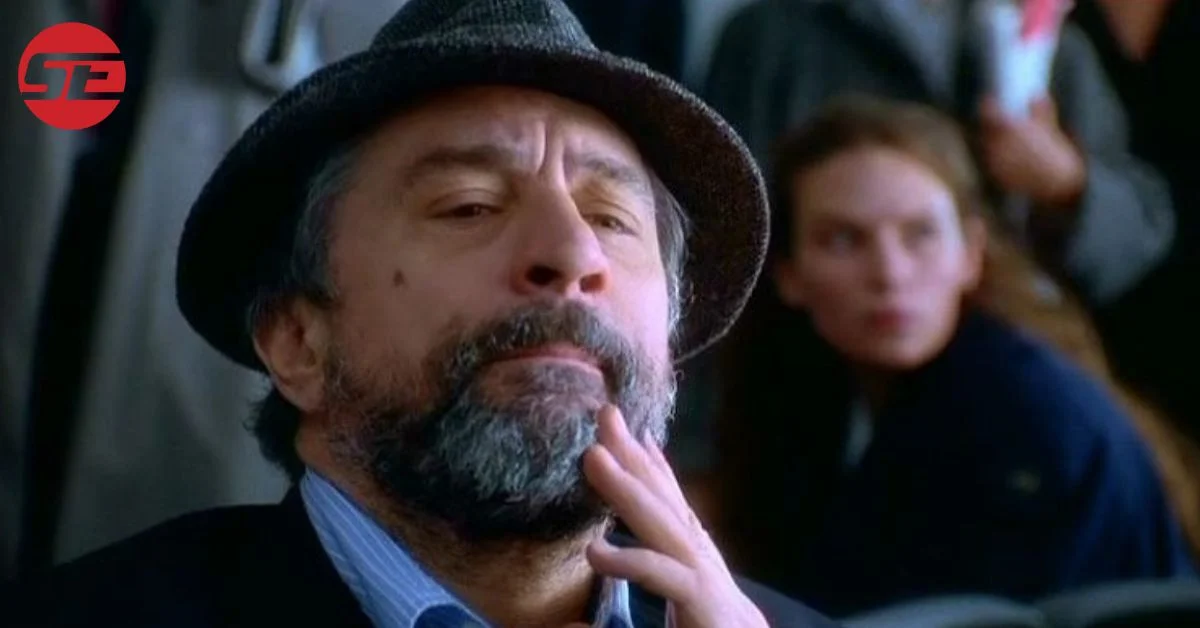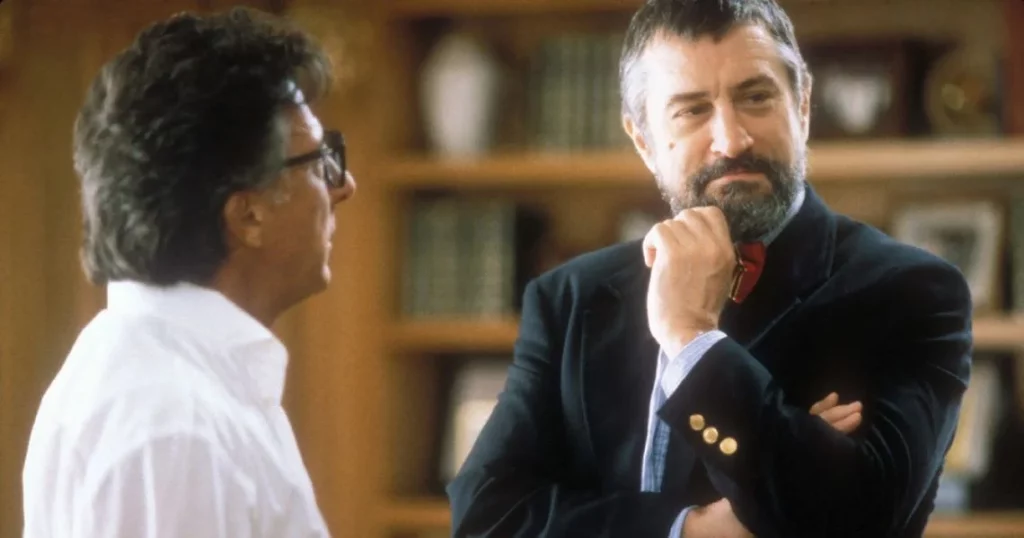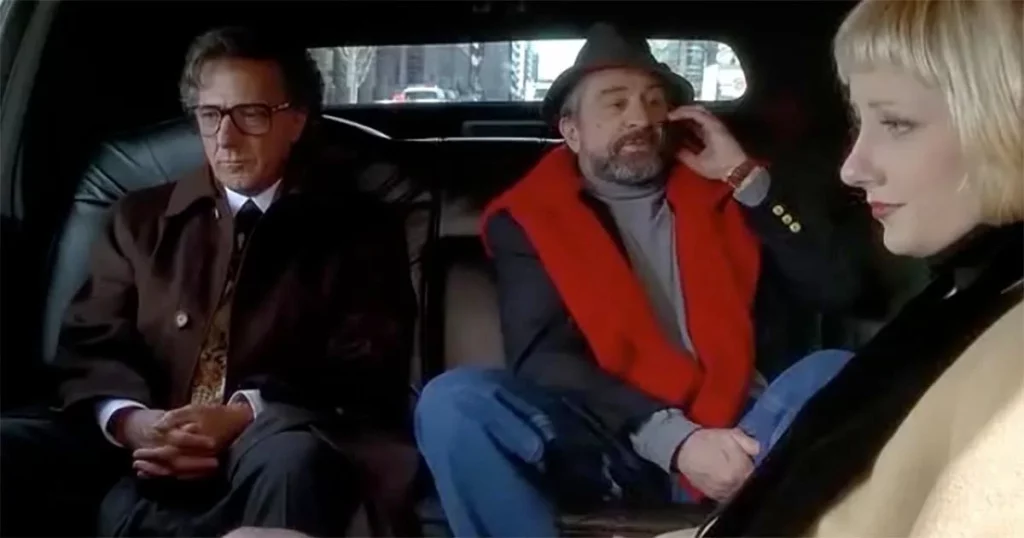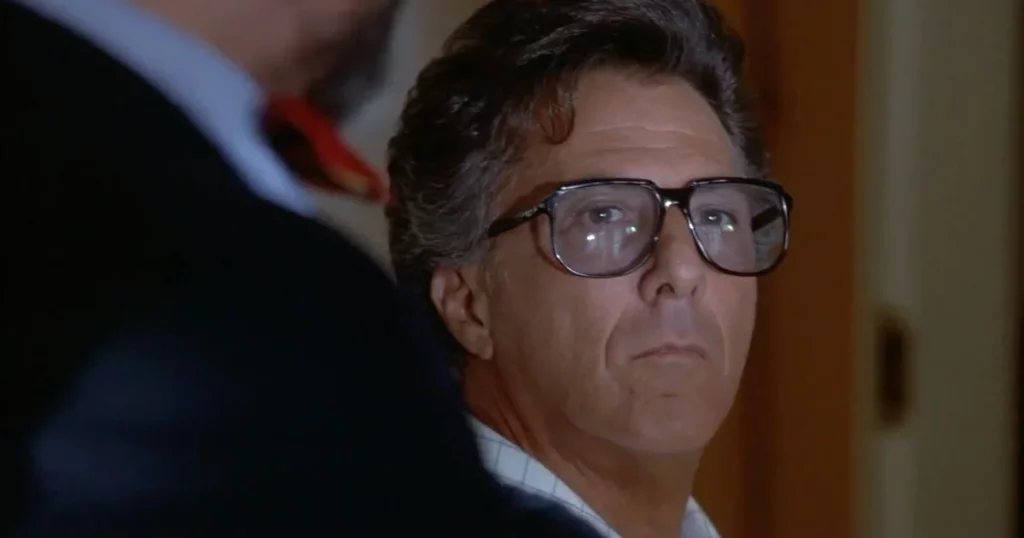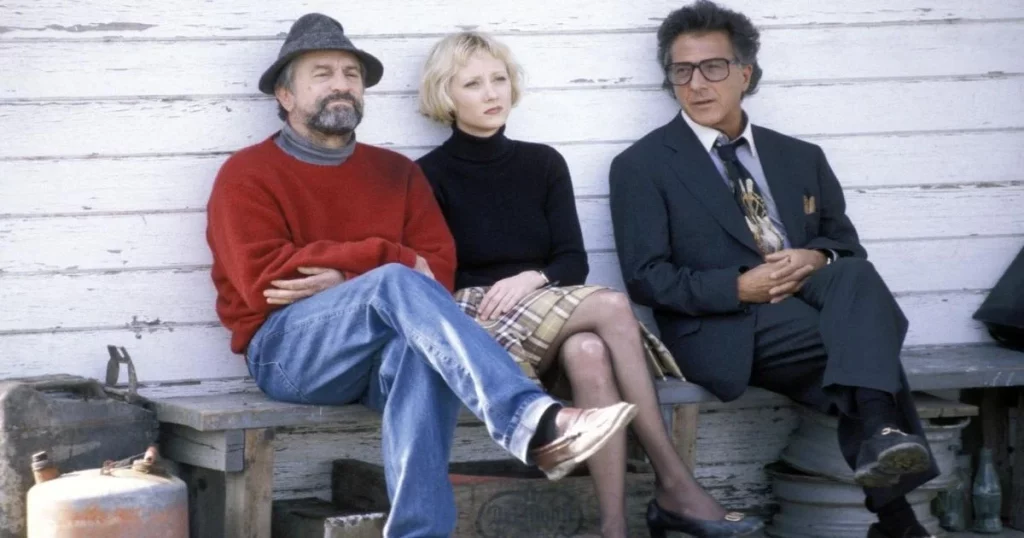Delving into Politics, Spin, and the Endless News Cycle
In the vast sea of political films, very few remain relevant, challenging our perceptions decade after decade. Yet, the 1997 masterpiece, “Wag the Dog,” starring the legendary Robert De Niro, achieves just that, constantly reminding us of the shifting sands of political narratives.
A Cinematic Mirror to Real-World Politics
“Very rarely do we get political films that hold up decades later.”
“Wag the Dog” breaks the mold. Time has only enhanced its relevance, drawing sharp parallels to political cover-ups, past, present, and, quite possibly, future. A film that echoes the sentiments of avid political enthusiasts, it’s a cinematic jewel that warrants a revisit, year after year.
Unraveling the Plot
The narrative of “Wag the Dog” revolves around a looming sex scandal that threatens to tarnish the President of the United States just weeks before a pivotal election. Enter Conrad Brean (played by Robert DeNiro), Washington’s top spin doctor, who’s summoned to navigate the choppy political waters.
In a bid to divert public attention, he teams up with Hollywood producer Stanley Motss (Dustin Hoffman). The audacious plan? To fabricate a war.
“The idea they arrive at is that the US is at war with Albania…The team even devises a theme song to get played on the radio and rally people behind the fake troops risking their lives in Albania.”
The scheme is wildly successful, pushing the president to reelection, but leaving a restless Motss yearning for recognition.
Reflecting on Media Manipulation
“Wag the Dog” doesn’t just provide entertainment; it serves as a disconcerting commentary on our ever-evolving news cycle. The film astutely captures our propensity to jump from one scandal to the next, seldom pausing to question the authenticity of the news.
“We live in a world of clickbait…But perhaps the main issue is that we spend our time looking at sensationalized photos and not digging deeper into stories to find out the real facts.”
Stellar Performances Elevate the Narrative
The film boasts a powerful ensemble cast. DeNiro and Hoffman are at their captivating best, complemented by the likes of Anne Heche, Denis Leary, and Willy Nelson. Their collective prowess turns a seemingly absurd premise into a gripping narrative that questions our trust in media.
The Everlasting Impact of Wag the Dog
Director Barry Levinson’s “Wag the Dog” isn’t just a movie. It’s a thought-provoking experience that compels viewers to introspect, regardless of their stance on conspiracy theories.
If you are a clearer-minded thinker, you will start to question your news consumption and sources… maybe your sources are not quite as down-the-line reporting as you might think.
The film’s title, rooted in the phrase, “A dog is smarter than its tail, but if the tail were smarter, then it would wag the dog,” serves as a timeless reminder of the underlying motives that often sway public perception.
In an era of information overload, “Wag the Dog” remains an illuminating watch, urging us to discern the truth amidst a whirlwind of media spins and political maneuverings.

